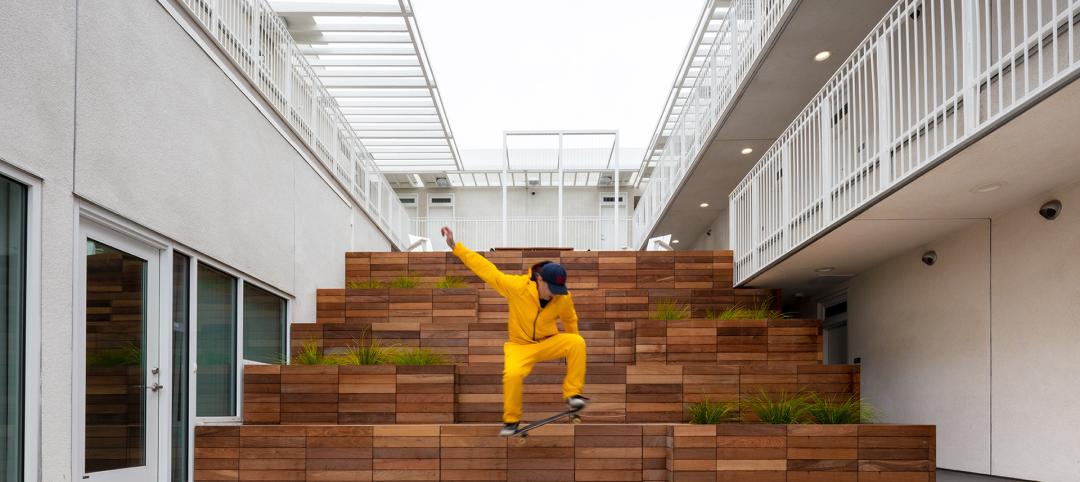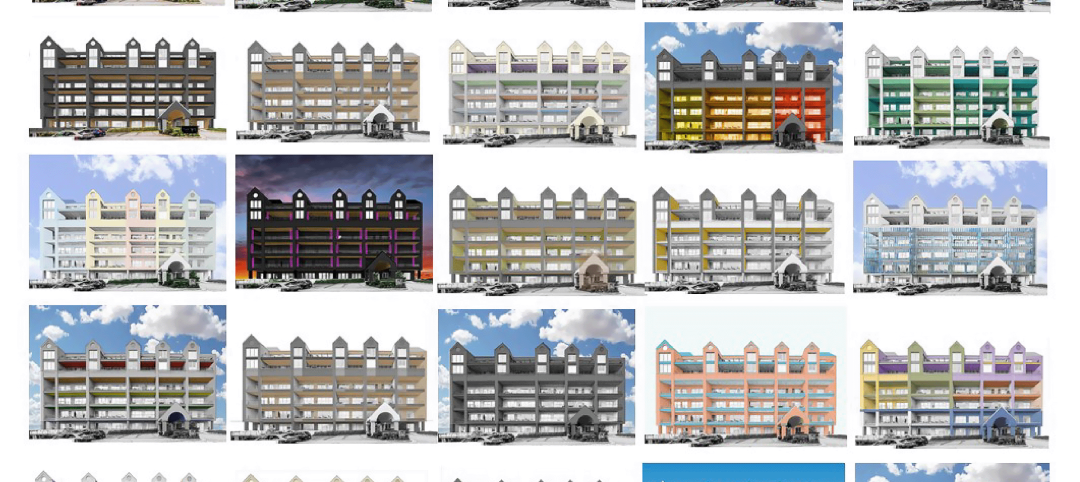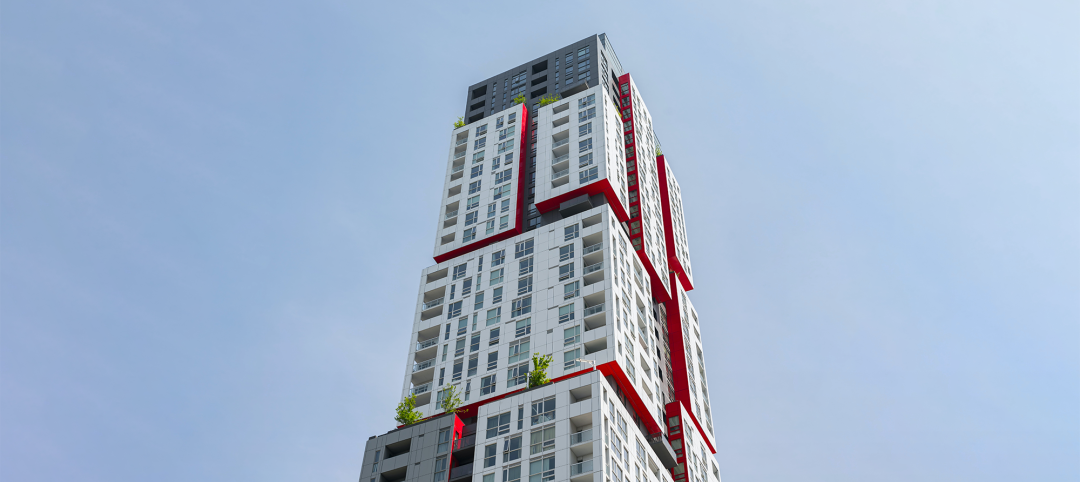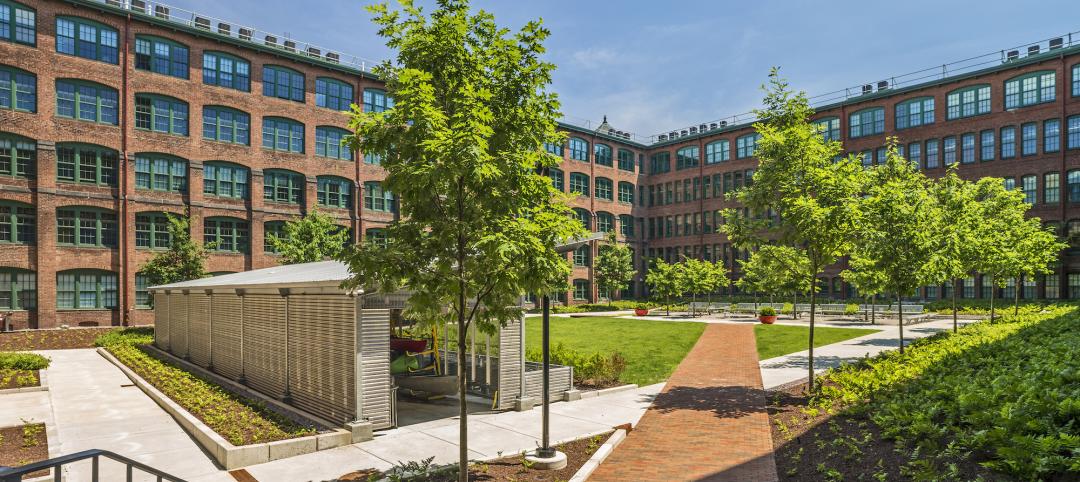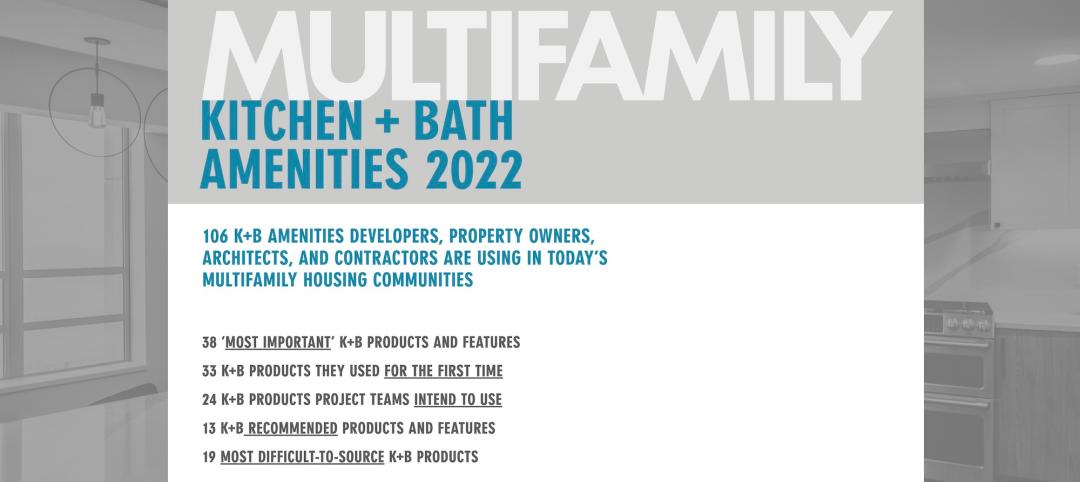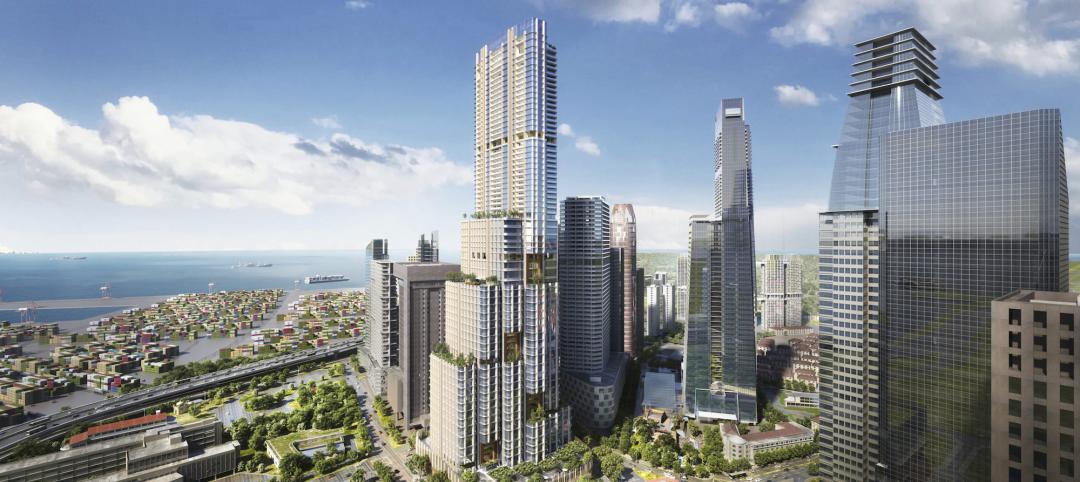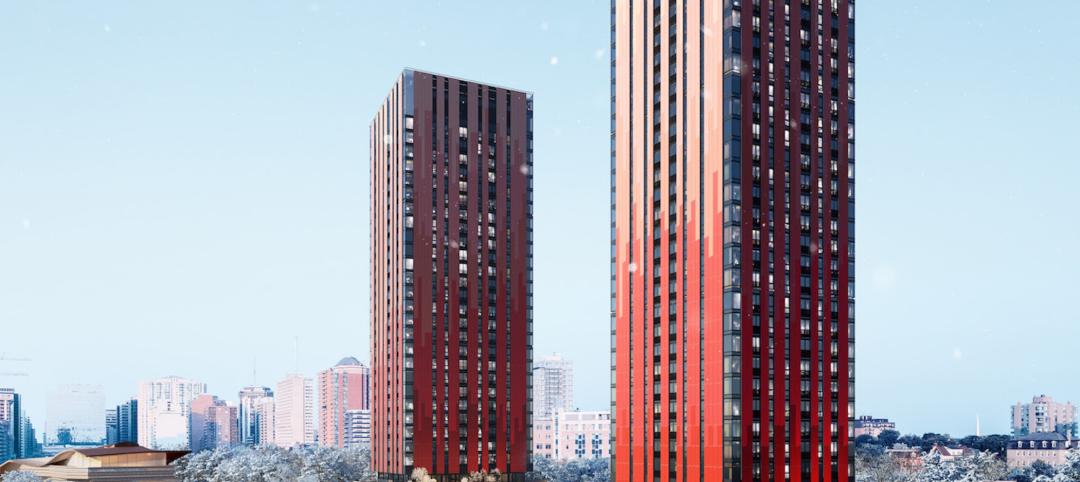The design and construction outlook for Multifamily Housing is again moving in the right direction, according to the PSMJ Resources’ Quarterly Market Forecast (QMF).
After a first quarter that saw the multifamily market suffer its lowest level of proposal activity in nearly a decade, PSMJ’s quarterly survey of architecture, engineering, and construction firm executives reported a +7% net plus/minus index (NPMI), up from the -2% recorded in the first three months of the year.
PSMJ’s NPMI expresses the difference between the percentage of firms reporting an increase in proposal activity and those reporting a decrease. The QMF has proven to be a solid predictor of market health for the AEC industry since its inception in 2003. A consistent group of over 300 firm leaders participate regularly, with 171 contributing to the most recent survey.
As unimpressive as multifamily’s second quarter NPMI is—particularly considering that it experienced seven consecutive years of quarterly NPMIs above 40% through the end of 2019—the upturn is significant. The market’s negative NPMI in the first quarter was its lowest since it capped 11 consecutive quarters of negative proposal opportunity growth with a -5% in the third quarter of 2010.
Multifamily Housing Market Proposal Activity – 1Q08 to 2Q20 (NPMI)
The multifamily rebound was part of overall improving conditions for most of the Housing market. Even with the COVID-19 crisis slowing down the overall economy, housing’s rebound may be driven in part by historically low mortgage interest rates.
Housing’s NPMI increased from -19% in the first quarter to +2% in the second quarter, making it one of only four major markets with a positive NPMI among the 12 assessed in PSMJ’s QMF. Water/wastewater (20%), energy/utilities (15%) and healthcare (10%) were the others.
Among the firms that work in the multifamily sector, 31% said that proposal activity increased in the second quarter, while 24% said it decreased. The remainder said the market was relatively flat.
PSMJ Senior Principal David Burstein, PE, AECPM, predicts that single-family housing will rebound faster and stronger than multifamily in the coming months.
“Overall, the housing market is very strong,” says Burstein. “For many years, this market has been dominated by multifamily housing as people moved into cities. Recently, that trend has reversed. Single-family housing in suburbs is now stronger than multifamily housing in large cities. This is even more true for new condominiums than for new apartment rental housing.”
Among housing’s other submarkets, single-family properties (individual) saw its NPMI improve from -31% in the first quarter to +9 in the second quarters.
Single-family developments remained well into the negative at -12%, but that was up from -28%.
Senior/assisted living ticked up from -3% to -1%, while condominiums continued to struggle (-28% in Q1 to -26% in Q2).
Related Stories
Multifamily Housing | Dec 20, 2022
Brooks + Scarpa-designed apartment provides affordable housing to young people aging out of support facilities
In Venice, Calif., the recently completed Rose Apartments provides affordable housing to young people who age out of youth facilities and often end up living on the street. Designed by Brooks + Scarpa, the four-story, 35-unit mixed-use apartment building will house transitional aged youths.
Coatings | Dec 20, 2022
The Pier Condominiums — What's old is new again!
When word was out that the condominium association was planning to carry out a refresh of the Pier Condominiums on Fort Norfolk, Hanbury jumped at the chance to remake what had become a tired, faded project.
Cladding and Facade Systems | Dec 20, 2022
Acoustic design considerations at the building envelope
Acentech's Ben Markham identifies the primary concerns with acoustic performance at the building envelope and offers proven solutions for mitigating acoustic issues.
Self-Storage Facilities | Dec 16, 2022
Self-storage development booms in high multifamily construction areas
A 2022 RentCafe analysis finds that self-storage units swelled in conjunction with metros’ growth in apartment complexes.
Sponsored | Resiliency | Dec 14, 2022
Flood protection: What building owners need to know to protect their properties
This course from Walter P Moore examines numerous flood protection approaches and building owner needs before delving into the flood protection process. Determining the flood resilience of a property can provide a good understanding of risk associated costs.
Sponsored | Multifamily Housing | Dec 14, 2022
Urban housing revival: 3 creative multifamily housing renovations
This continuing education course from Bruner/Cott & Associates highlights three compelling projects that involve reimagining unlikely buildings for compelling multifamily housing developments.
Multifamily Housing | Dec 13, 2022
Top 106 multifamily housing kitchen and bath amenities – get the full report (FREE!)
Multifamily Design+Construction's inaugural “Kitchen+Bath Survey” of multifamily developers, architects, contractors, and others made it clear that supply chain problems are impacting multifamily housing projects.
Mixed-Use | Dec 7, 2022
Bjarke Ingels’ first design project in South America is poised to open next year in Ecuador
In 2013, Quito, Ecuador’s capital, opened its new airport, which had been relocated from the metro’s center to an agricultural site 12 miles northeast of the city. Since then, Quito’s skyline has been reshaped by new, vertical structures that include the 24-story mixed-use EPIQ Residences, designed in the shape of a quarter circle by Bjarke Ingels Group (BIG).
High-rise Construction | Dec 7, 2022
SOM reveals its design for Singapore’s tallest skyscraper
Skidmore, Owings & Merrill (SOM) has revealed its design for 8 Shenton Way—a mixed-use tower that will stand 63 stories and 305 meters (1,000 feet) high, becoming Singapore’s tallest skyscraper. The design team also plans to make the building one of Asia’s most sustainable skyscrapers. The tower incorporates post-pandemic design features.
Multifamily Housing | Dec 7, 2022
Canada’s largest net-zero carbon residential community to include affordable units
The newly unveiled design for Canada’s largest net-zero carbon residential community includes two towers that will create a new destination within Ottawa and form a striking gateway into LeBreton Flats. The development will be transit-oriented, mixed-income, mixed-use, and include unprecedented sustainability targets. Dream LeBreton is a partnership between real estate companies Dream Asset Management, Dream Impact, and local non-profit MultiFaith Housing Initiative.



